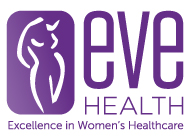Pregnancy and childbirth is a natural process in which physiological adaptations have been fine-tuning survival for thousands of years. These adaptations (or side effects of these adaptations) account for almost every ‘typical’ pregnancy symptom; pubic synthesis pain, back and pelvic pain, fluid retention, cramps, heartburn, constipation, carbohydrate cravings, fatigue, loss of aerobic endurance capacity, and of course, the adaptations in the bloodstream which improve the ability of blood to form clots in order to survive hemorrhage following delivery or miscarriage (in the year 1200!). It is this last adaptation, in combination with the physical effects of carrying a baby against the major veins and arteries in the abdomen, which account for one the most important risks of travel. In fact, blood clots form 30 times more commonly during pregnancy than outside pregnancy! Obviously this doesn’t mean that travel is out of the question and is too risky, just that this risk needs to be considered and precautions put in place to improve safety for mum and baby. I usually advise compression stockings, hydration and mobilisation for flights under 5 hours. For longer distances, I advise Clexane injections to further reduce the risk. Because the number of women experiencing clots is very small, the evidence is unclear as to the best approach – every health care provider will give different advice depending on their personal preferences, interpretation of the evidence and the individual risk profile of each pregnant woman.
The second consideration is the location and gestation/timing of travel. ‘Pregnancy viability’ refers to the ability of a baby to survive birth. Preterm birth happens in approximately 8% of pregnancies (birth < 37 weeks gestation), and although most of these are close to 37 weeks, a small number occur between 22 to 26 weeks, at the limit of viability. We are so fortunate to have some of the best facilities in the world right on our doorstep, and there are plenty of other countries whose nurseries will attempt to resuscitate babies from 22 – 23 weeks’ gestation. If the baby survives, it will likely spend months in an intensive care nursery, and even though the risk is incredibly small, I have personally looked after a Canadian patient who arrived in Brisbane for a conference and had a baby unexpectedly at 24 weeks, requiring unexpected relocation to Brisbane for 3 months! These stories are obviously very uncommon, but the risk of preterm birth always needs to be taken into account when planning travel – and of course be sure that your insurance policy covers this risk!
Finally, different countries have different types of infectious diseases and dietary/nutritional patterns change dramatically when traveling. Defective packaging of processed foods, under-cooked meat, raw and unwashed fruit and vegetables, deli cheeses, unpasteurised dairy and foods prepared with poor standards of hygiene have specific risks in pregnancy. Fortunately, most cases of gastro and food poisoning are due to viruses and bacterial toxins which, while unpleasant and occasionally very serious, don’t usually have a direct impact on the developing baby.
Influenza seasons vary from country to country, and it is highly recommended that all vaccines are up-to-date prior to travel. Remember that some vaccines can’t be given during pregnancy, and your GP or travel doctor will know the current guidelines. Specific viruses such as Zika virus have become topical in recent years, and the WHO website keeps an up-to-date list of countries that are known to be at risk for this infection. Your health care provider will be able to put this risk into context for you, as the various definitions can be confusing!
At the end of the day, travel is becoming increasingly common during pregnancy as families spread out all over the world, professional responsibilities take us to exotic conference locations and, of course, there is the necessary ‘babymoon’ to plan a final escape before some serious lifestyle changes!
Travel during pregnancy can be incredibly rewarding and recharging, or necessary, and with a detailed conversation regarding your specific plans and risk profile, can also be a safe and relaxing experience for mum and baby.
Happy travels!
Rob
Blog post by Dr Rob Butler
Comments are closed.

